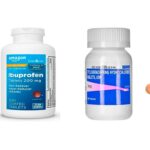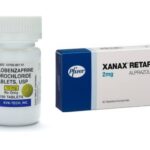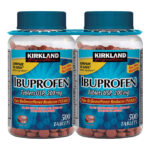Can I Get Addicted to Cyclobenzaprine Pills?

The word “addiction” is derived from a Latin term for “enslaved by” or “bound to.” Anyone who has struggled to overcome an addiction—or has tried to help someone else to do so—understands why.
Addiction exerts a long and powerful influence on the brain that manifests in three distinct ways: craving for the object of addiction, loss of control over its use, and continuing involvement with it despite adverse consequences.
An addictive drug is one that you cannot stop taking once you have started. Addiction involves craving for something intensely, loss of control over its use, and continuing involvement with it despite adverse consequences. Addiction changes the brain, first by subverting the way it registers pleasure and then by corrupting other normal drives such as learning and motivation. Although breaking an addiction is tough, it can be done.
What is Cyclobenzaprine?
Cyclobenzaprine is a medication used with rest, physical therapy, and other measures to relax muscles and relieve pain and discomfort caused by strains, sprains, and other muscle injuries. Cyclobenzaprine is in a class of medications called skeletal muscle relaxants. It works by acting in the brain and nervous system to allow the muscles to relax.
Is Cyclobenzaprine A Controlled Substance?
No, according to the DEA, Cyclobenzaprine is not currently controlled under the Controlled Substances Act. However, one cannot just buy cyclobenzaprine online in the United States as cyclobenzaprine is a prescription medication that requires a consultation with a licensed medical provider before it can be obtained from a pharmacy. One of the benefits of cyclobenzaprine is that it is not a narcotic.
How should Cyclobenzaprine be used?
Cyclobenzaprine comes as a tablet and an extended-release capsule to take by mouth. The tablet is usually taken with or without food three times a day. The extended-release capsule is usually taken with or without food once a day. Do not take this drug for more than 3 weeks without talking to your doctor.
The usual starting dose is 5 mg, three times per day. The maximum recommended dose is 10 mg, three times daily. Follow the directions on your prescription label carefully, and ask your doctor or pharmacist to explain any part you do not understand. Take cyclobenzaprine exactly as directed. Do not take more or less of it or take it more often than prescribed by your doctor.
Swallow the extended-release capsules whole; do not chew or crush them.
If you are not able to swallow the extended-release capsule whole, mix the contents of the capsule with applesauce. Eat the mixture right away and swallow without chewing. After you eat the mixture, take a drink, and swish and swallow to make sure that you have received all the medication.
Is Cyclobenzaprine Addictive?
According to the DEA, cyclobenzaprine is not habit-forming. However, chronic use of the drug can lead to physical dependence where a person taking a higher dose of cyclobenzaprine due to pain can become accustomed to the presence of the drug in the system and develop an addiction as a result.
Anecdotal reports found on the Internet suggest that individuals are taking cyclobenzaprine alone or in combination with other illicit drugs to produce or enhance psychoactive effects. Individuals have reported taking cyclobenzaprine both orally and intra-nasally at doses ranging from 10 mg to 60 mg. Sedation, relaxation, and increased heart rate were the most common effects reported. Euphoria was reported by a smaller number of individuals.
Several indicators suggest that cyclobenzaprine is being intentionally misused or abused. According to the American Association of Poison Control Centers, 10,615 case mentions and 4,444 single exposures were associated with cyclobenzaprine in 2016, resulting in 75 major medical outcomes and four deaths among single substance exposures. In 2017, there were 10,429 case mentions, 4,248 single exposures, 97 major medical outcomes, and one death.
What side effects can cyclobenzaprine cause?
Cyclobenzaprine may cause side effects. Tell your doctor if any of these symptoms are severe or do not go away:
• constipation
• dizziness
• dry mouth
• extreme tiredness
• heartburn
• nausea
If you experience any of the following symptoms, call your doctor immediately:
• chest pain
• difficulty breathing or swallowing
• hives
• irregular or fast heart rate
• skin rash
• swelling of the face or tongue
If you experience a serious side effect, you or your doctor may send a report to the Food and Drug Administration’s (FDA) MedWatch Adverse Event Reporting program online (http://www.fda.gov/Safety/MedWatch) or by phone (1-800-332-1088).





